Artist's designs for Alabama church bombing window on display
- Published
The stained glass window was designed by Carmarthenshire artist John Petts
Fifty years ago racist bombers blew up the 16th Street Baptist Church in Birmingham, Alabama, killing four black girls attending Sunday school.
The bombing by members of the Ku Klux Klan was a new low in the fight for civil rights.
As news spread around the world, Carmarthenshire artist John Petts made a pledge to design a replacement stained glass window for the church.
His designs have now gone on display at the National Library of Wales.
A campaign started by the Western Mail newspaper raised funds for Petts's venture in the days following the attack on 15 September, 1963.
Iconic symbol
In 1965, Petts, from Llansteffan, near Carmarthen, delivered the window which showed a black Jesus beneath a rainbow of racial unity - his right arm pushing away hatred and injustice, the left offering forgiveness.
The National Library of Wales in Aberystwyth said the window was installed and dedicated with the words: "Given by the people of Wales".
Today, the window is known as the Wales Window and is an iconic symbol of the American civil rights movement, says the library.
Jaimie Thomas, the library's exhibitions officer, said: "These exquisite designs are treasured by the library on behalf of the nation, not only for their artistic merit and historic worth, but as a symbol of the kindness of the people of Wales.
"To mark the anniversary, the drawings have recently been conserved and digitised as part of our online collection, and visitors to the library will have an opportunity to see the original designs on show until the end of the year."
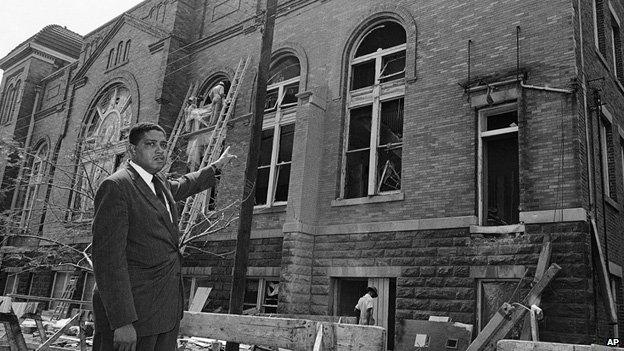
Rev John Cross points to the damage at the 16th Street Baptist Church in Birmingham, Alabama, a few days after the bombing
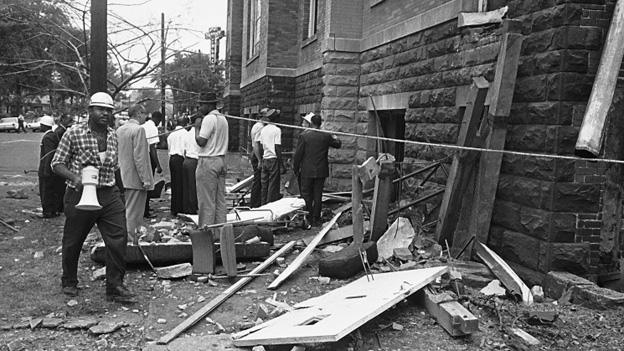
Investigators work outside the church in the aftermath
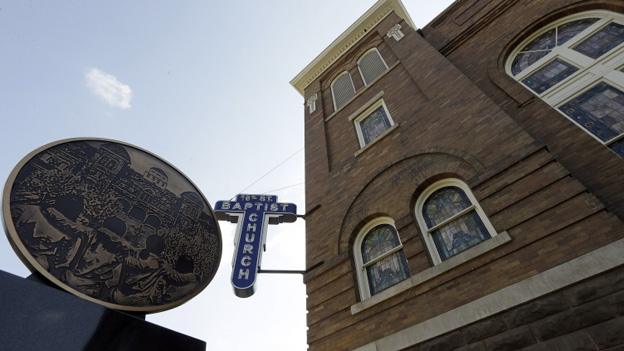
The 16th Street Baptist Church as it looks 50 years later
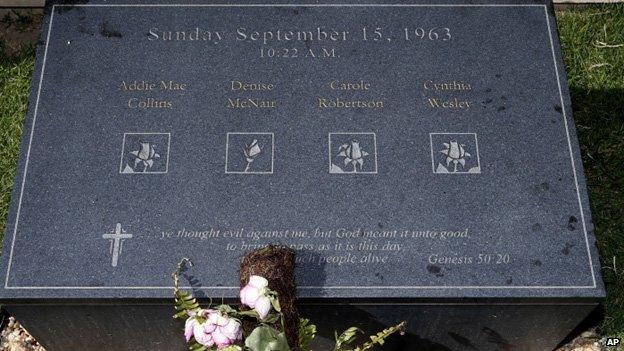
There is also a plaque to remember the four girls at the spot the bomb was detonated
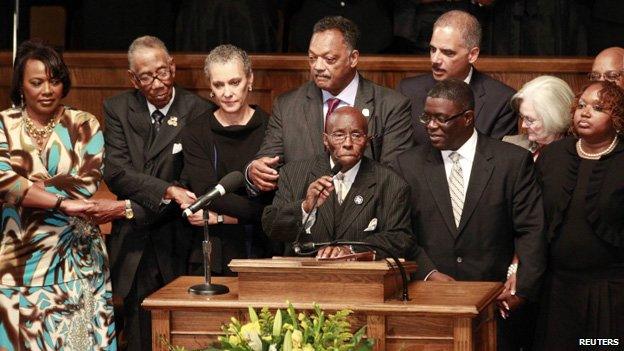
Rev Calvin Woods led the singing of We WIll Overcome during a community memorial service at the church to mark the anniversary
The blast at the 16th Street Baptist Church was a defining moment of the civil rights era.
Worst incident
The church had been targeted because it was being used as a meeting place by black civil rights workers at the height of their campaign in the American south.
It remains one of the United States' worst incidents of racial violence.
The explosion killed Denise McNair, 11, along with Carole Robertson, Cynthia Wesley and Addie Mae Collins, all 14, as they got ready for a Sunday morning service.
Speaking to the BBC in 1987, Petts recalled: "They had never heard of Wales, they had no idea where it was, but they were very quickly told something of the little country Wales and how it put great value on independence and freedom, to bandy with the great big words.
"An idea doesn't exist unless you do something about it.
"Thought has no real living meaning unless it's followed by action of some kind."
Petts died in 1991.
His window designs will be on display at the National Library of Wales in Aberystwyth until 14 December.
Hundreds of people in Birmingham, Alabama, have marked the 50th anniversary of the attack by attending a service at the church.
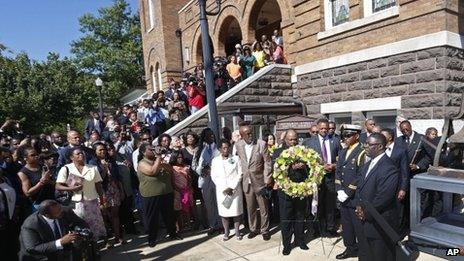
A wreath is carried at the 16th Street Baptist Church in Birmingham, Alabama to mark the 50th anniversary
- Published10 March 2011